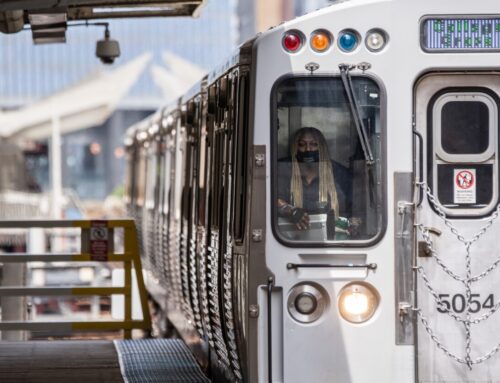Congressional Cannabis Caucus co-chair Dave Joyce proposes federal marijuana reforms
April 22, 2025
WASHINGTON, D. C. – Congressional Cannabis Caucus co-chair Dave Joyce introduced legislation last week that would remove marijuana from the list of federally controlled substances and allow states to set their own policies on its use.
Noting that nearly all 50 states permit some use of cannabis or cannabis-based products, the South Russell Republican said the existing policy has caused unnecessary harm and wasted tax dollars by diverting law enforcement resources from “violent crimes to making needless arrests and facilitating incarcerations for small possessions of state legal marijuana.”
He said his STATES 2.0 Act, introduced with Bay Village GOP Rep. Max Miller and his Democratic Cannabis Caucus co-chair, Dina Titus of Nevada, would “create a more logical approach to cannabis regulation that allows each state to put the policies in place that work best for their communities and unique needs.”
Ohio voters legalized adult marijuana use in November 2023 via state Issue 2, and dispensaries started selling recreational marijuana in August. But Issue 2 was a statute, not a state constitutional amendment. That means state lawmakers can alter it.
In February, Ohio’s Senate passed a proposal that would cut home grow limits and ban people from sharing what they cultivate. Republicans who control the Ohio House of Representatives introduced their own proposal that would make fewer changes to current law.
Miller said 24 states have legalized recreational cannabis, and 39 states permit its use for medical purposes.
“It’s time for federal lawmakers to establish commonsense guardrails that protect children, promote public safety, support scientific research, address addiction and mental health concerns, and uphold the rights of communities that choose to opt out of cannabis use,” said a statement from Miller. “This legislation empowers each state to adopt policies that reflect the needs and values of their residents without fear of federal interference.”
In addition to no longer classifying marijuana as a substance covered by the Controlled Substances Act, their legislation would ban marijuana distribution to anyone under age 21 ,and bar employment of persons under age 18 in marijuana operations.
It would also prohibit marijuana distribution at transportation safety facilities such as rest areas and truck stops and allow the Alcohol and Tobacco Tax and Trade Bureau (TTB) and the Food and Drug Administration (FDA) to regulate marijuana products under current food, drug, dietary supplement, and cosmetic product laws.
It has support from organizations including the United States Cannabis Roundtable, Cannabis Freedom Alliance, and Coalition for Cannabis Policy, Education, and Regulation (CPEAR).
“Currently, a confusing patchwork of state and federal cannabis laws is undermining public safety, stifling economic growth, and leaving patients, veterans, small business owners, and law enforcement in legal limbo,” said a statement from Shanita Penny, CPEAR’s executive director. “The STATES 2.0 Act changes that—bringing clarity, consistency, and accountability.
Joyce teamed up with House Democratic Leader Hakeem Jeffries of New York on a separate bill that would instruct the U.S. Attorney General to establish the “Commission on the Federal Regulation of Cannabis” to advise how to develop a regulatory framework for marijuana modeled on state and federal regulations for alcohol.
Within a year of enacting the Preparing Regulators Effectively for a Post-Prohibition Adult Use Regulated Environment (PREPARE) Act, the commission would be asked to publish a report on how to implement regulations.
“With this legislation, Congress would be equipped to develop a much-needed federal regulatory framework that not only respects the unique needs, rights, and laws of each state, but also ensures a responsible end to prohibition and a safer future for our communities,” said a statement from Joyce.
Search
RECENT PRESS RELEASES
Related Post


